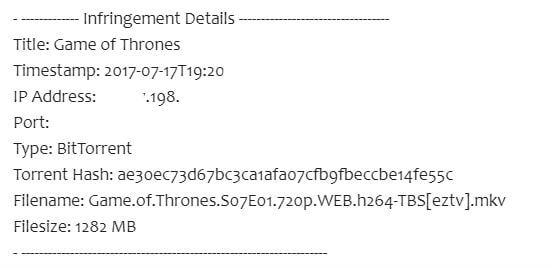
BREIN is the most prominent outfit of its type in the Netherlands but it’s not uncommon for its work to be felt way beyond its geographical borders. The group’s report for the first six months of 2017 illustrates that in very clear terms.
In its ongoing efforts to reduce piracy on movies, music, TV shows, books and games, BREIN says it carried out 268 investigations during the first two quarters of 2017. That resulted in the takedown of 231 piracy-focused sites and services.
They included 45 cyberlocker linking sites, 30 streaming sites and 9 torrent platforms. The last eDonkey site in the Netherlands was among the haul after its operators reached a settlement with BREIN. The anti-piracy outfit reports that nearly all of the sites were operated anonymously so in many instances hosting providers were the ones to pull the plug, at BREIN’s request.
BREIN has also been actively tracking down people who make content available on file-sharing networks. These initial uploaders are considered to be a major part of the problem, so taking them out of the equation is another of BREIN’s goals.
In total, 14 major uploaders to torrent, streaming, and Usenet platforms were targeted by BREIN in the first six months of this year, with each given the opportunity to settle out of court or face legal action. Settlements typically involved a cash payment of between 250 and 7,500 euros but in several instances, uploaders were also required to take down the content they had uploaded.
In one interesting case, BREIN obtained an ex parte court order against a person running a “live cinema” on Facebook. He later settled with the anti-piracy group for 7,500 euros.
BREIN has also been active in a number of other areas. The group says it had almost 693,000 infringing results removed from Google search, pushing its total takedowns to more than 15.8 million. In addition, more than 2,170 listings for infringing content and devices were removed from online marketplaces and seven piracy-focused Facebook groups were taken down.
But while all of these actions have an effect locally, it is BREIN’s persistence in important legal cases that have influenced the copyright landscape across Europe.
Perhaps the most important case so far is BREIN v Filmspeler, which saw the anti-piracy group go all the way to the European Court of Justice for clarification on the law surrounding so-called “fully loaded” set-top boxes.
In a ruling earlier this year, the ECJ not only determined that selling such devices is a breach of copyright law, but also that people streaming content from an illicit source are committing an offense. Although the case began in the Netherlands, its effects will now be felt right across Europe, and that is almost completely down to BREIN.
But despite the reach of the ruling, BREIN has already been making good use of the decision locally. Not only has the operator of the Filmspeler site settled with BREIN “for a substantial amount”, but more than 200 sellers of piracy-configured set-top boxes have ceased trading since the ECJ decision. Some of the providers are the subject of further legal action.
Finally, a notable mention must go to BREIN’s determination to have The Pirate Bay blocked in the Netherlands. The battle against ISPs Ziggo and XS4ALL has been ongoing for seven years and like the Filmspeler case, required the attention of the European Court of Justice. While it’s still not over yet, it seems likely that the Supreme Court will eventually rule in BREIN’s favor.
Source: TF, for the latest info on copyright, file-sharing, torrent sites and ANONYMOUS VPN services.



 Last Sunday, the long-awaited seventh season of the hit series Game of Thrones aired in dozens of countries worldwide.
Last Sunday, the long-awaited seventh season of the hit series Game of Thrones aired in dozens of countries worldwide. Exactly one year ago, on July 20th 2016, the torrent community was in dire straits.
Exactly one year ago, on July 20th 2016, the torrent community was in dire straits. 
 Earlier this week, HBO released the long-awaited seventh season of the hit series Game of Thrones.
Earlier this week, HBO released the long-awaited seventh season of the hit series Game of Thrones. 






 If you enjoy this episode, consider becoming a patron and getting involved with the show.
If you enjoy this episode, consider becoming a patron and getting involved with the show.  Yesterday, the first episode of Game of Thrones’ seventh season made its way onto the Internet. Like every year, this generated quite a bit of activity on various torrent sites.
Yesterday, the first episode of Game of Thrones’ seventh season made its way onto the Internet. Like every year, this generated quite a bit of activity on various torrent sites.

